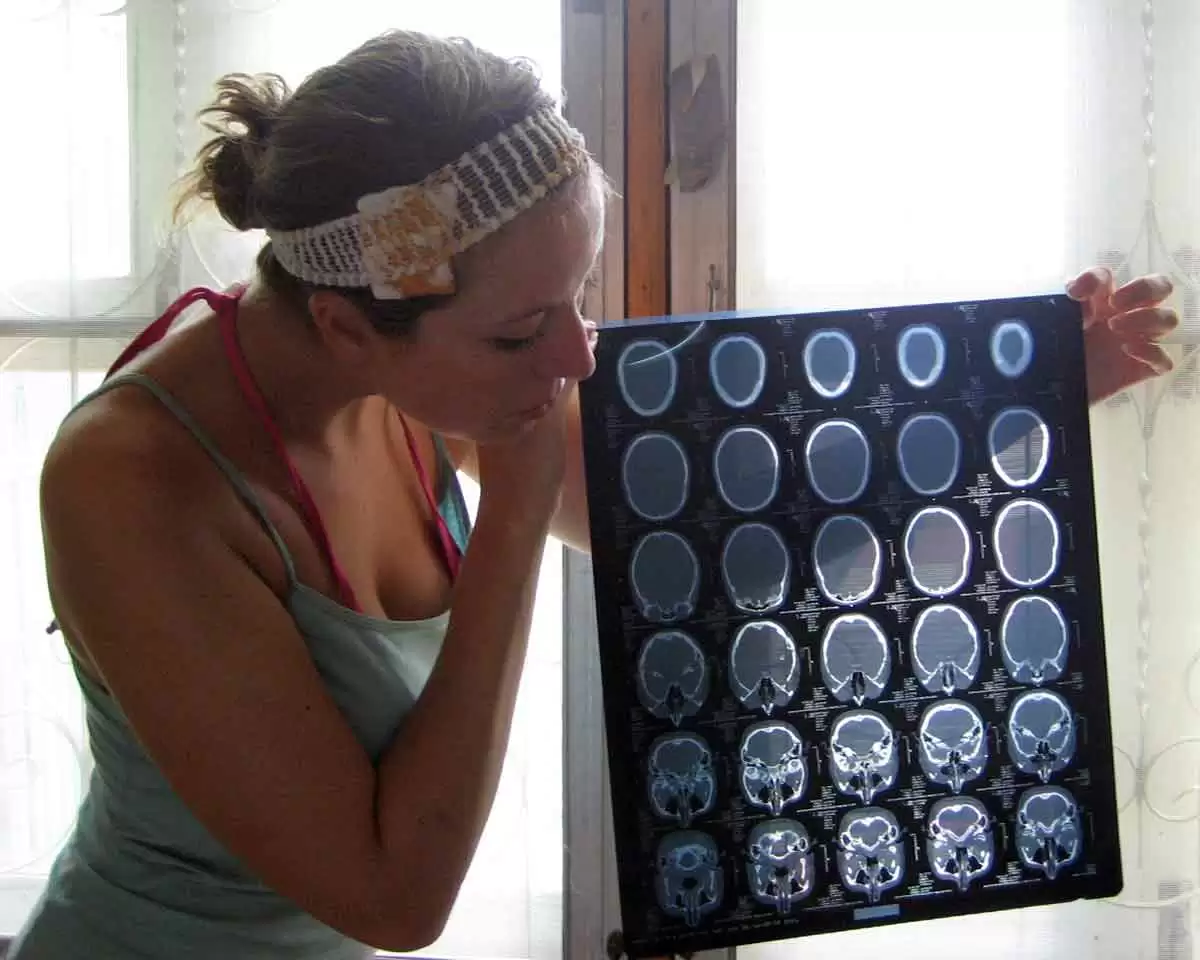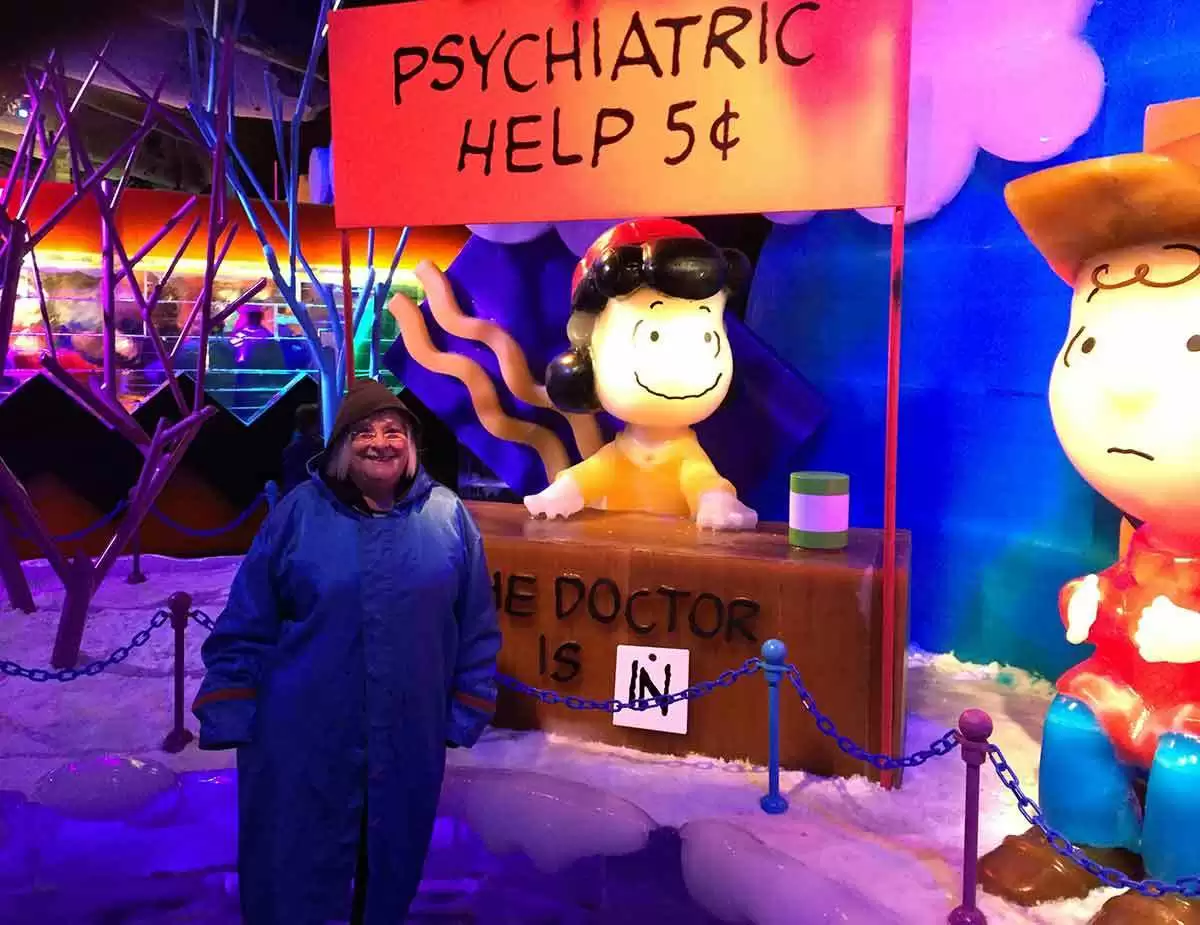
Celiac.com 10/29/2021 - Ron Hoggan's book Dangerous Grains has been an enormous help toward understanding something bizarre that happened to my 19 year old son, Lee, in the past year.
Lee suddenly began acting psychotic one day last October and eventually had what appeared to be some kind of seizure. He lay on the couch, tensed up, and started shaking violently. His eyes were rolling back into his head and he was vocalizing loudly. After a period of time he came out of it and was somewhat lucid but seemed dazed, and very confused.
Celiac.com Sponsor (A12):
We took him to the emergency room where he underwent a battery of tests that revealed nothing out of the ordinary. During the wait, he had two more of the seizure-like episodes. A psychiatrist was phoned and he was given neuroleptic drugs. He went to the epilepsy ward for further testing -EEG, CT scans and MRI's that did not reveal anything obviously wrong. Fortunately, we were able to stay with him.
On the morning of the second day he seemed better and we talked while he ate breakfast. Thirty minutes later he was having an episode- again shaking and vocalizing, and after a couple of hours started to come out of it. We noticed this pattern- eating, followed shortly afterward by seizure-like episodes and psychosis which gradually cleared enough to converse. I started to notice what he was eating and the common denominator was wheat. I gave him some rice and vegetables from home and there was no reaction, but bagels, bread, muffins and gravy all seemed to bring about the same violent reaction. I have food allergies and am aware that wheat is a common allergen (I learned to avoid it years ago), but I couldn't understand how he could be affected in such an extreme manner, so quickly after eating.
He was moved to a locked psychiatric ward, diagnosed with possible bipolar disorder or non-specific schizophrenia, and the neuroleptics were continued. Of course, his psychiatrist didn't want to hear about my observations regarding Lee's apparent reaction to wheat. (My wife and daughter also witnessed it on several occasions.) I told the psychiatrist that Lee hadn't been having any mental changes lately but had been complaining about digestive problems and I requested a biopsy to confirm celiac disease. It was promptly denied, but I was able to get the hospital dietitian to put him on a gluten-free diet (unknown to the psychiatrist who rarely saw him, but was happy to prescribe ever increasing doses of neuroleptics). The seizures stopped the very next day- the staff no doubt assumed the drugs were having an effect in spite of my revelation about the gluten-free diet.
Over the next several weeks Lee became more psychotic and suffered terrible side-effects from the drugs. The county brought him to court and had him committed. He was ordered to continue the neuroleptics, and there seemed to be little we could do. Eventually he was sent to a halfway house, but a couple of weeks after arriving he started to become catatonic. (I had told the staff about the wheat reaction but they were unable to provide a gluten-free diet). We took him to the emergency room where we learned that he was extremely dehydrated. He had lost the urge to eat or drink and was becoming very psychotic. The hospital was full, so he was sent to a sister hospital. By the time the ambulance arrived, he was completely catatonic - unable to speak and incontinent.
At the new hospital, he had a new psychiatrist. She was alarmed at the dosages of drugs he was receiving and felt he was probably experiencing the beginning of ‘neuroleptic malignant syndrome,' a potentially fatal reaction to neuroleptics. The drugs were discontinued but he remained catatonic and was given Electro Convulsive Treatment several times a week. (I also spoke with the dietician when he was admitted and had Lee placed on a gluten-free diet - which was halfheartedly followed). After a few ECT treatments (and a mostly gluten-free diet) he started to come out of it. His new doctor began to realize that he didn't seem to have any mental illness at all (now that the neuroleptics had been discontinued, the catatonia was lifting and diet was improving) and called in several specialists for a more thorough evaluation.
I told her about the reaction to wheat but she refused to believe there could be a connection. Finally, another neurologist was brought in and he had the insight to give him a gliadan antibody test and found that he was extremely reactive. He was finally "officially" put on a gluten-free diet (we had been bringing him food from home and doing everything we could behind the scenes to keep gluten from him). He continued to improve, in spite of the side effects of the ECT.
His psychiatrist couldn't really understand what was going on with him but began to trust us enough to release him, drug-free, into our care. Three months after the ordeal began, he finally came home and is clearer now than he's been in years. He's always been kind of quiet and we realize now that gluten has probably been affecting him for years. He has done an excellent job of following the gluten-free diet, is working full time, and starts college in a few weeks.
Shortly after he came home, my mother came across Dangerous Grains and bought it for me. It all finally makes sense and I plan to send copies to Lee's psychiatrist and neurologist. We saw countless people in the locked psychiatric wards who were suffering and, with the exception of the chemical dependencies everyone was on some type of drug or drugs. Many were receiving ECT on a routine basis. I know my son is not unique - testing and gluten-free diets could save many of these poor souls from a lifetime of drugs and suffering. I want to do everything I can to increase the knowledge of these professionals and Dangerous Grains seems the perfect vehicle.
So great thanks to Ron Hoggan (and Dr. Braly and the rest) for doing what you're doing. I know it's only a matter of time before the people that control the mental health system become enlightened enough to stop doing harm and truly begin to heal these patients. It was a close call for us and I realize Lee is a living example.






Recommended Comments
Create an account or sign in to comment
You need to be a member in order to leave a comment
Create an account
Sign up for a new account in our community. It's easy!
Register a new accountSign in
Already have an account? Sign in here.
Sign In Now